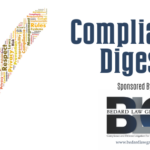A District Court judge in North Carolina has granted a defendant’s motion for relief from judgment on the grounds that a default judgment obtained by the plaintiff in a Fair Debt Collection Practices Act case is void due to lack of service of process.
A copy of the ruling in the case of Becvar v. DCN Holdings can be accessed by clicking here.
The plaintiff filed suit against the defendant, alleging it violated the FDCPA when it contacted his mother and disclosed private information about the plaintiff in an attempt to collect on an unpaid debt. The plaintiff accused the defendant of violating the FDCPA and state law in North Carolina. Here’s where things get interesting.
The plaintiff hired a process server, who attempted to serve the summons and complaint on the defendant — which is based in Florida — at the address registered with the Florida Secretary of State’s office. The process server was unsuccessful — twice — at serving the complaint, saying that the individuals at the address evaded service and denied that the location was the defendant’s address. The server attempted to serve the complaint at a secondary address, but was unsuccessful.
State law in Florida allows for summonses and complaints to use substituted service on Florida’s Secretary of State, which the plaintiff did. The plaintiff then filed for a default judgment, which was granted, when the defendant failed to answer the complaint. This is when the defendant starts to get involved.
The defendant filed its motion to set aside the judgment and the plaintiff argued that the defendant “was concealing its whereabouts or was otherwise nowhere to be found when the case was filed.” But, under the state law that allows for substitute service to the Secretary of State, the complaint has to be amended to reflect that the defendant has concealed its whereabouts or was nowhere to be found before relying on the substitute service.
Because the plaintiff did not amend his complaint when he availed himself of the substitute service, the defendant was not properly served, ruled Judge Max O. Cogburn of the District Court for the Western District of North Carolina.
But, Judge Cogburn noted, the defendant now has no excuse for saying it didn’t know about the lawsuit and ordered the defendant to respond within 30 days.









